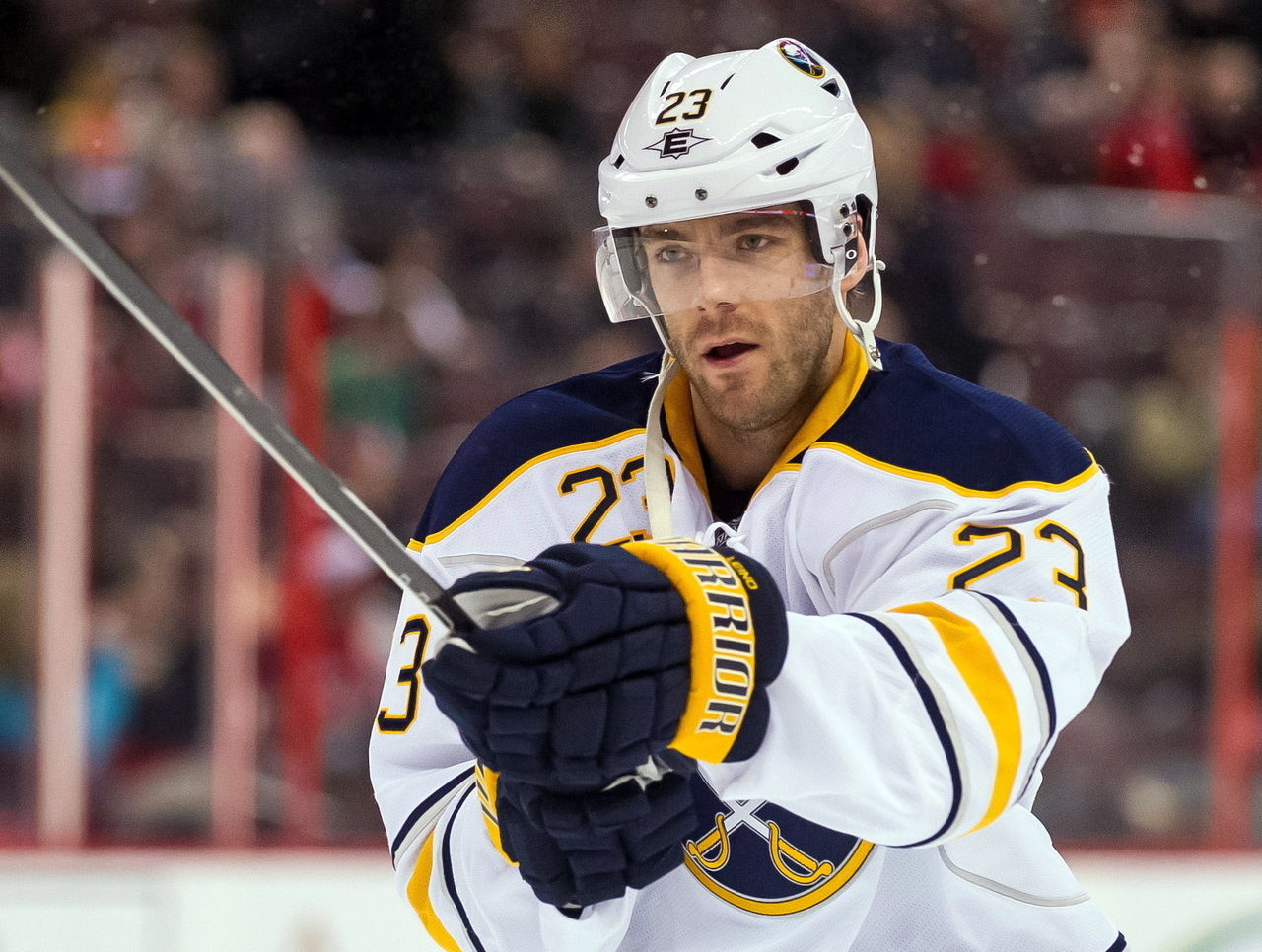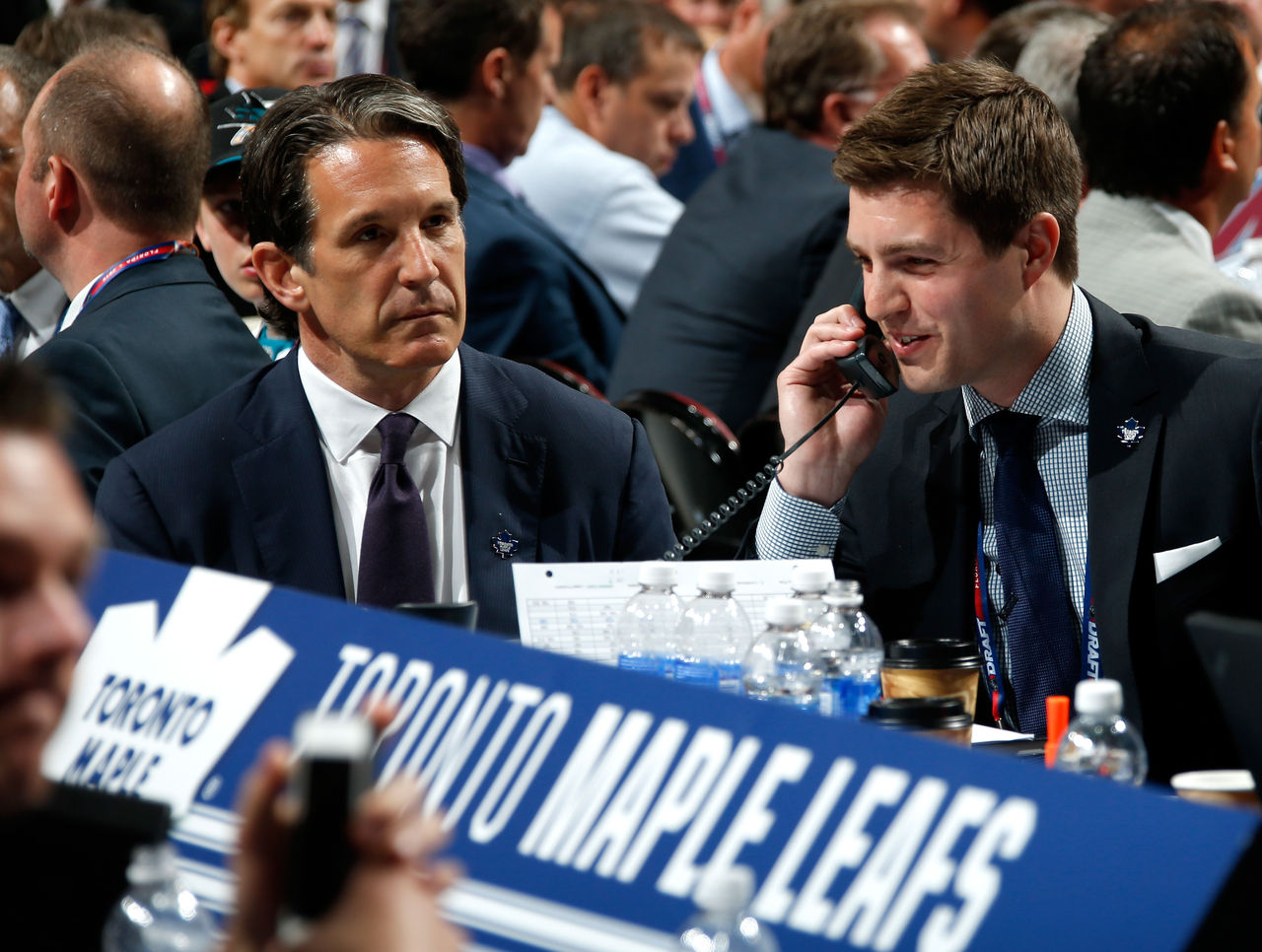Alter: It's early, but Maple Leafs proving more adept at rebuilding than Sabres

TORONTO - Back in late May, much fanfare accompanied the Toronto Maple Leafs' hiring of Mike Babcock as head coach. Not to be forgotten in the sweepstakes were the Buffalo Sabres, who reportedly met with Babcock prior to his decision. At his introductory press conference in Toronto, members of the Buffalo media put Babcock on the spot about the details.
But the end result is what mattered. Toronto won the Babcock sweepstakes, while the Sabres lost.
On Saturday, the Maple Leafs hosted the Sabres in a game that had zero short-term implications. Both teams won't compete for the Stanley Cup.
In fact, both teams are going through full-scale rebuilds, but appear headed in different directions.
There is no quick rebuild

The Sabres have been rebuilding for years now. They've been near the bottom of the standings for the past few seasons and have had some summers to double-down on young talent, while adding the odd veteran here and there to complement the roster.
The Maple Leafs are in the first year of their rebuild, a dismantling long overdue. And there are already signs that Toronto has learned how to do it a little bit better.
To compare the Sabres' rebuild fairly, you need only go back to the 2011-12 season. Multi-billionaire Terry Pegula purchased the team in February 2011, giving Buffalo the wherewithal to compete with the NHL's very best teams. Pegula made a bold declaration: Buffalo would be a free-agent destination, and the Sabres would be players in the market. In July 2011, forward Ville Leino became a Sabre, signed to a six-year, $27-million contract.
Days before the Leino signing, the Sabres traded for the rights to defenseman Christian Ehrhoff, and then signed him to a 10-year, $40-million contract. Pegula's words delivered action.
Buffalo narrowly missed out on the 2012 playoffs, by three points, but the regression was underway. Older players had to be moved out and both Leino's and Ehrhoff's contracts were ultimately purged under compliance-buyout rules in June 2014.
"A lot of nights, this team was hard to watch," Sabres general manager Tim Murray said when he addressed the media at the end of the 2013-14 season, in which his team finished last by 14 points. "This is not going to be a five-year rebuild, not for me anyway. That's not what I want."
Sound familiar?
It's the same notion Brian Burke had when he served as president and general manager of the Maple Leafs. On March 3, 2010, Burke addressed the media following the trade deadline.
"Like you saw with the (Phil) Kessel deal, we're not interested in a five-year rebuilding plan," Burke said.
Patience a virtue many GMs can't afford
The Sabres finished last again in 2014-15, though Murray was busy.
Buffalo made some additions, trading for talented forward Evander Kane from the Winnipeg Jets. Kane came with baggage, but Buffalo represented a fresh start. This season, he was disciplined by the team for sleeping in and missing practice after attending the NBA All-Star game in Toronto the night before.
In late June 2015, the Sabres traded for Ryan O’Reilly, and the forward was immediately signed to a seven-year, $52.5-million extension. He will make $11 million next season, which includes a $10-million signing bonus.
Outside of Rasmus Ristolainen, Buffalo's defense is in need of severe help. It starts with a solid structure and some patience.
They drafted Jack Eichel, a heck of a consolation prize to Connor McDavid, but the Sabres have demonstrated a lack of patience.
Patience off the ice, too

In June 2015, the Maple Leafs' overhaul included the hiring of a new doctor, Jeremy Bettle, as director of sports science. In late July, Toronto shocked everyone, hiring Lou Lamoriello as its general manager.
Before the Sabres and Maple Leafs played Saturday, Buffalo head coach Dan Bylsma was answering questions about a tense parting of ways with the club's director of performance, Oliver Finlay. He didn't survive his first season on the job, thanks to some resistance to his methods.
Many of the Maple Leafs' prospects have been dominating the AHL. The Toronto Marlies have the league's best record, and were the first team to clinch a playoff spot. Buffalo's farm team, the Rochester Americans, is occupying the last playoff spot in the North Division, with two teams threatening to bump it out of postseason contention.
A rebuilding rivalry
The Buffalo-Toronto rivalry is not about what has been happening on the ice, but about the foundation both organizations are trying to build. Both have taken very different approaches, but it appears Toronto is winning the battle at the moment.
It's still early, and some of the challenges both markets go through are very different. But it's hard to fault Toronto's approach, one season in.
HEADLINES
- Who's for real? What to make of NHL standings at Thanksgiving mark
- Highlights You Missed: All the best action from NHL's 15-game slate
- Suzuki scores twice, Demidov has winner for Habs vs. Mammoth
- Avalanche win 10th straight, register 3rd consecutive shutout
- Report: Oilers showing significant interest in Penguins' Jarry